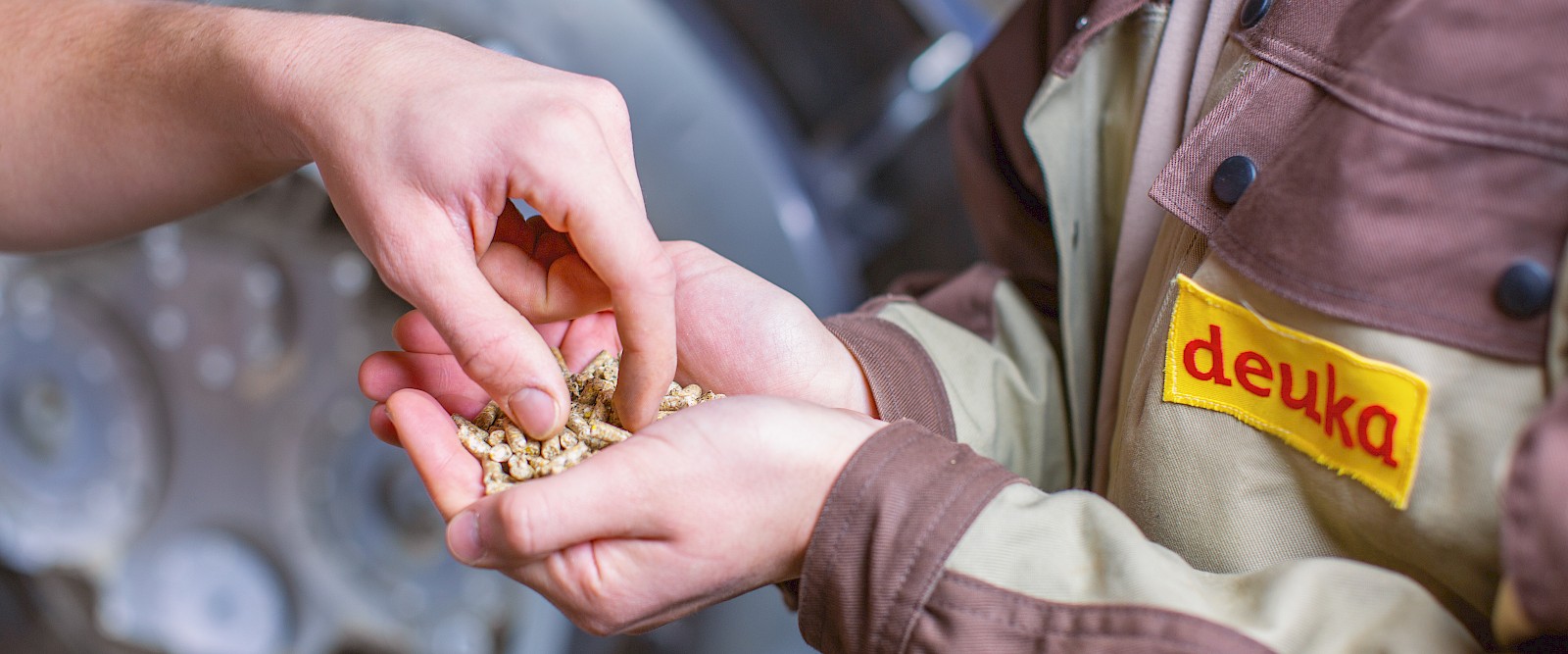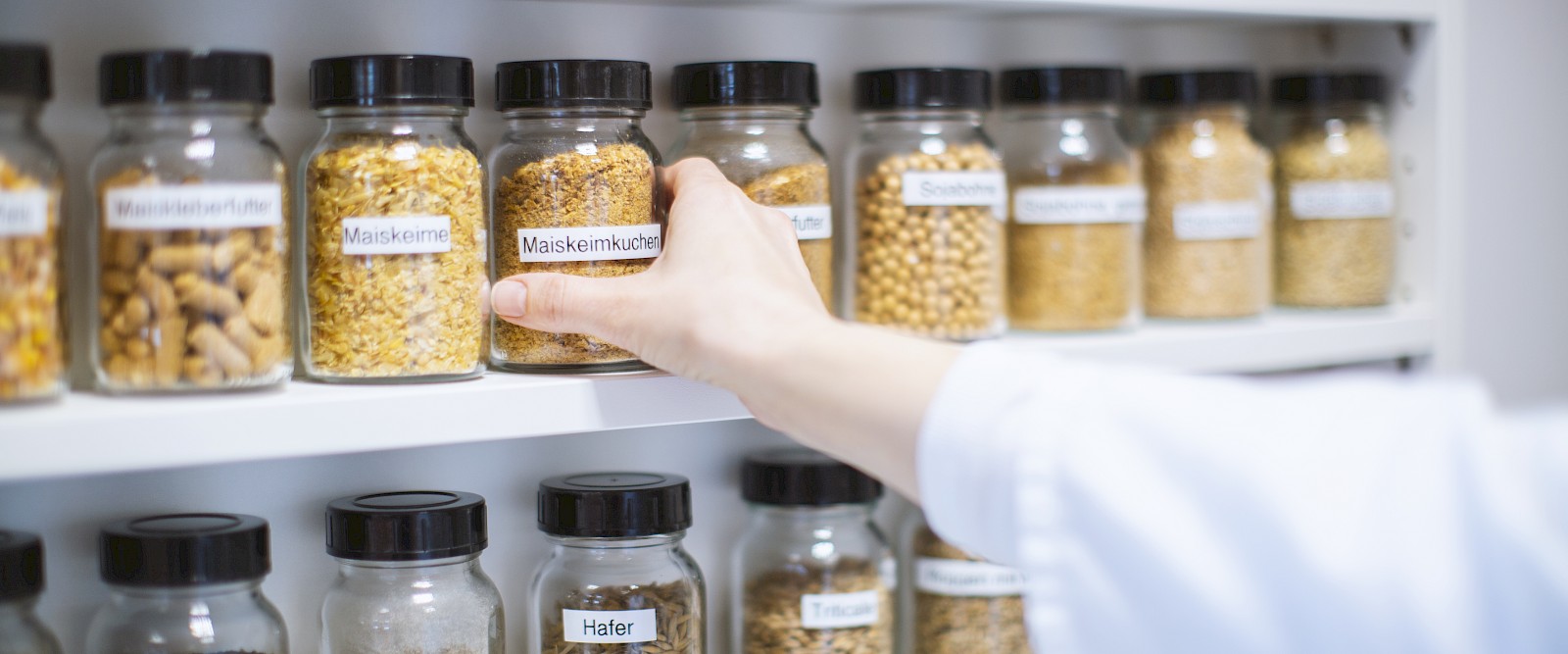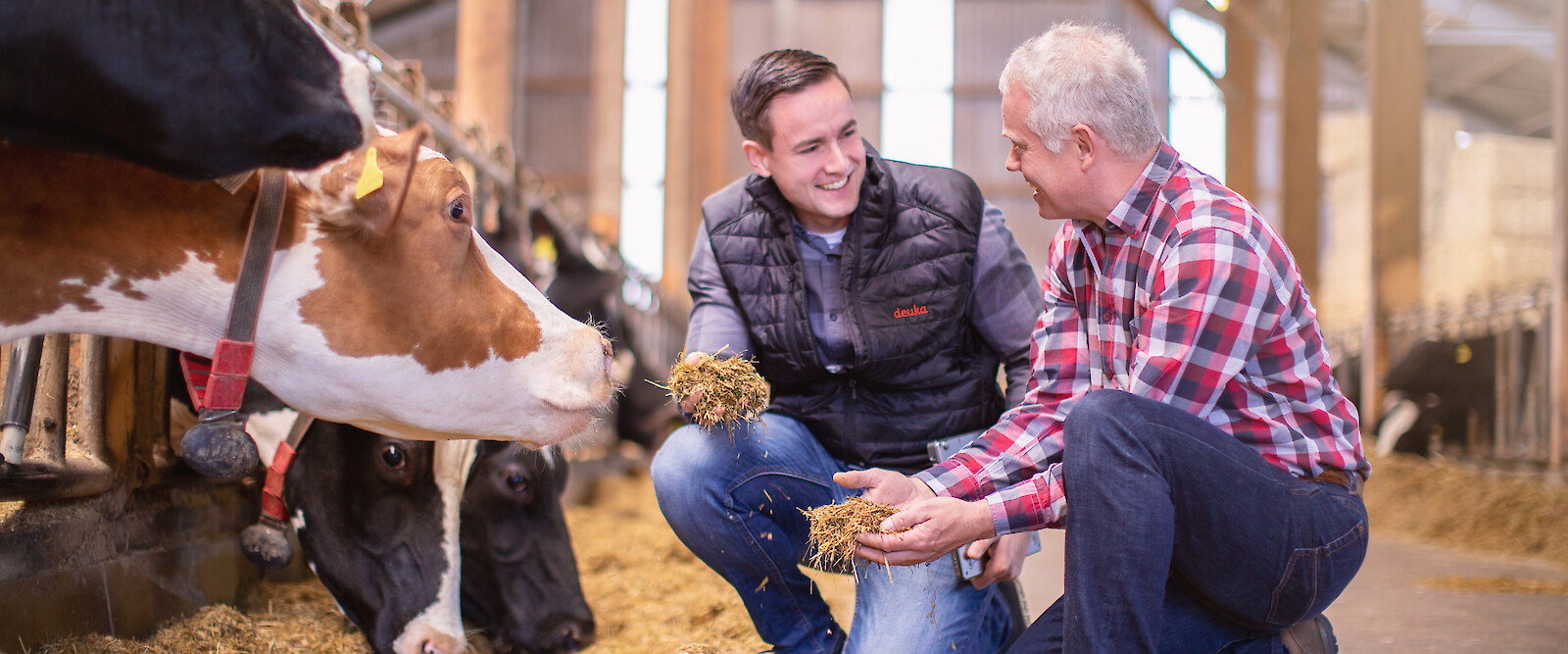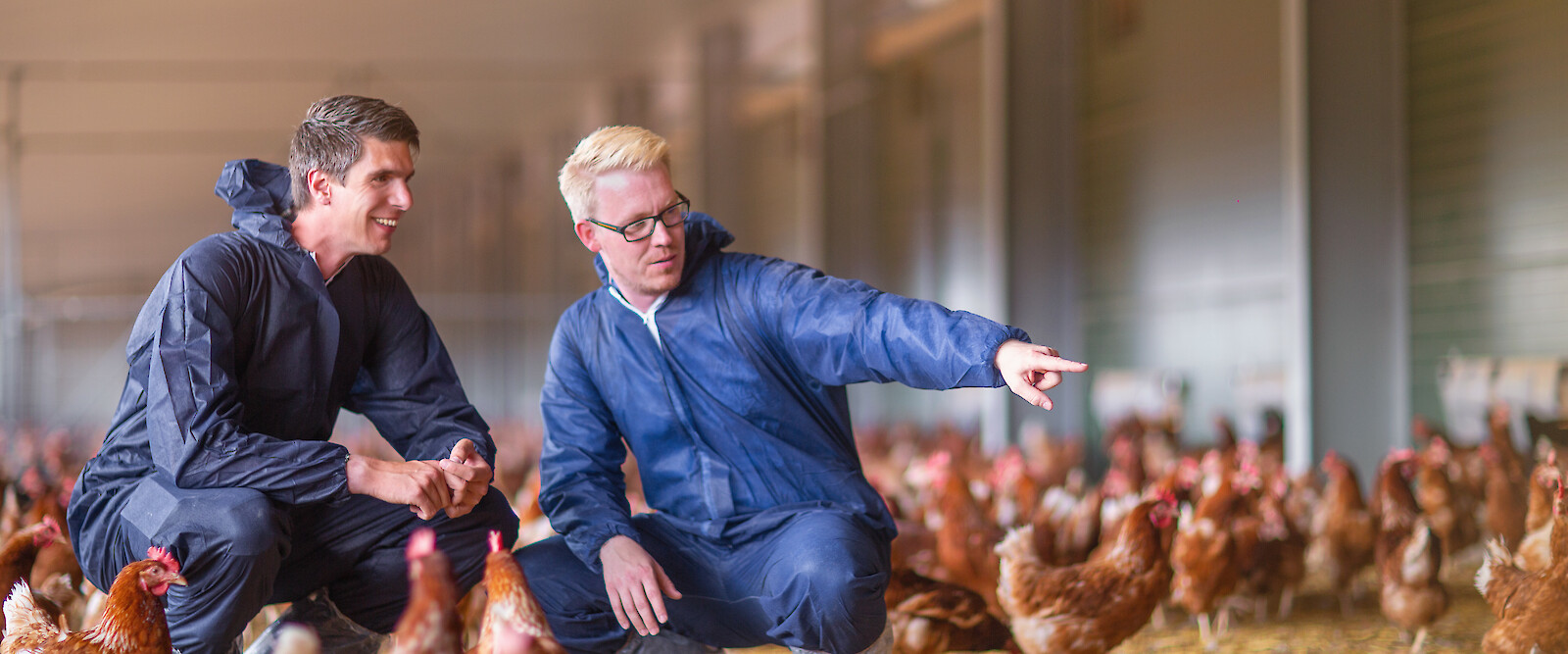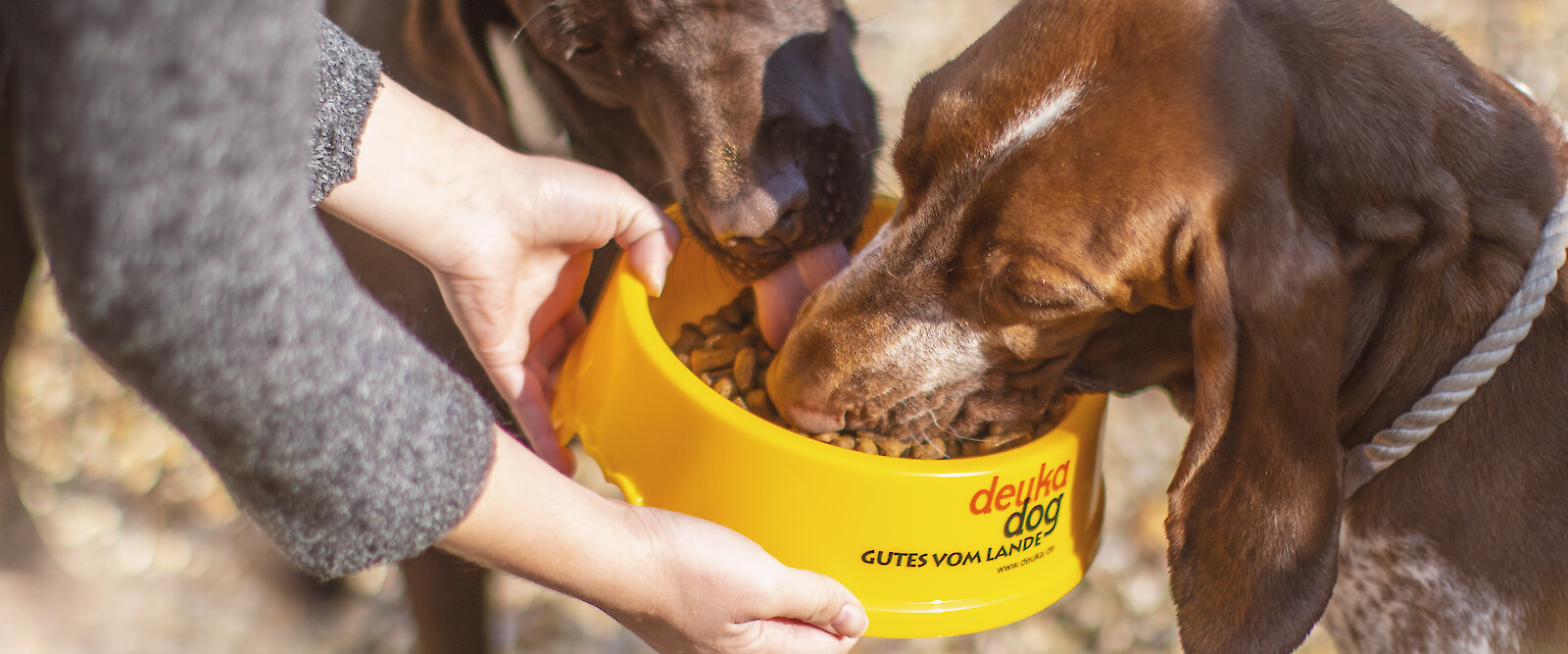Raw material and nutrient lexicon
Undegraded dietary protein (UDP)
The term "UDP (The term "undegraded dietary protein" denotes the portion of the raw protein in the feed that is not degraded by the rumen microbes in the forestomach (rumen) of ruminants and is thus directly available as a protein source in the small intestine. This part of the feed protein is also called "flow-through protein" or "rumen-stable protein".
The proportion of UDP, i.e. of "rumen-stable protein in relation to total protein", can vary considerably in different feed components; proportions of only five % to over 30 % are common in untreated plant feeds.
To meet the needs of the freshly lactating cow, the total ration must contain a UDP content of about 35 % of the total protein. Therefore, high-silage rations for high-performance cows must be upgraded with protein components whose UDP content is significantly above 40 %. This cannot be achieved with the usual components available today. Therefore, Deutsche Tiernahrung Cremer has developed the patented opticon process. In this physical treatment process, protein components are treated pressure-hydrothermally, i.e. under the influence of the physical parameters of pressure, temperature and humidity, and a structural change of the protein is achieved. Such a change makes the protein less attackable for the rumen microorganisms in a certain time unit, thus "protecting" it. Using this technology, a UDP content of over 50 % of the total protein is achieved in protein carriers such as soybean and rapeseed extraction meal. The protein is demonstrably highly available in the small intestine.
